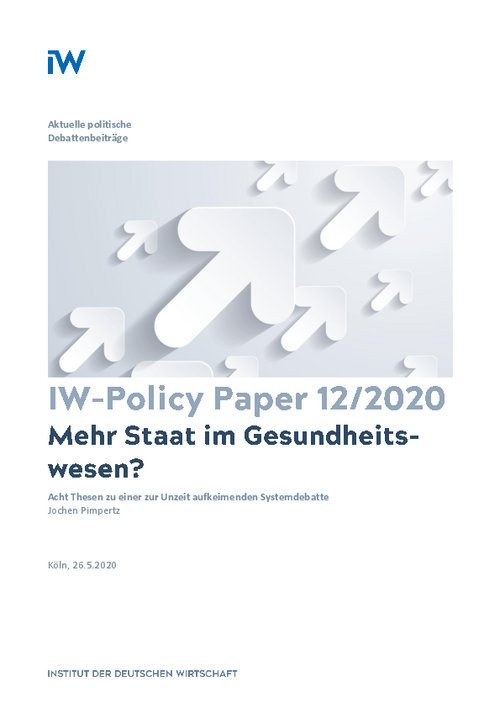Among the current challenges of the pandemic, the German health care system has so far proven to be comparatively robust. While the infection rate in Germany is so far slightly lower than in other large European economies, the relatively low mortality rate stands out positively.

More government in the health care system?: Eight theses on a system debate that is budding at an inopportune moment
IW-Policy Paper

Among the current challenges of the pandemic, the German health care system has so far proven to be comparatively robust. While the infection rate in Germany is so far slightly lower than in other large European economies, the relatively low mortality rate stands out positively.
So far, this is explained by the early onset of contact restrictions. In addition, there are indications that the customarily high frequency of contact between German patients and their physicians, in combination with facilitated conditions for sick leave under the pandemic, also may have had a positive impact on the development to date.
Under SARS-CoV-2, the focus is particularly on inpatient care. Even before, the German health care system was already characterised by a comparatively large number of hospital beds. Particularly the intensive care equipment could be increased – potentially favoured by a mix of private and public hospital operators in Germany. Bottlenecks are more likely to be caused by the staffing of hospitals, where Germany does not compare favourably with other countries. Fortunately, up to now, the system has not yet been subjected to an ultimate stress test.
Against the background of a currently emerging debate on the design of the German health care system, it is worth noting that so far there is no evidence of a lack of medical efficiency among the challenges posed by the crisis, especially with regard to the private sector organisation. Beyond the day, however, misguided incentives that have already been criticised before are still waiting for a solution.

Jochen Pimpertz: Mehr Staat im Gesundheitswesen? Acht Thesen zu einer zur Unzeit aufkeimenden Systemdebatte
IW-Policy Paper

More on the topic

The Political Economy of Pension Reform
As the German population ages, the country’s statutory pension scheme, which is financed on a pay-as-you-go basis, requires higher and higher contributions while the level of pensions is falling.
IW
Expenditures and Revenues in Germany’s Statutory Health Insurance
Almost annually recurring deficits in Germany’s statutory health insurance system have led to a steady rise in the contribution rate, a percentage of earned income.
IW